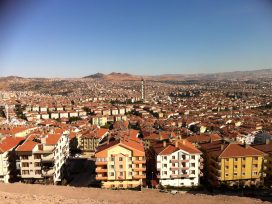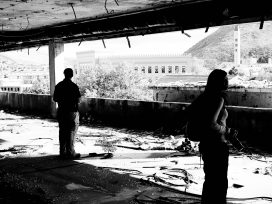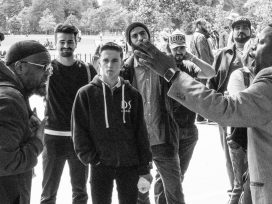
Contemporary public policy is no longer able to rely on representative democracy. To stay legitimate and fulfil popular needs, it has to transform and become more participatory and digital, writes Dmytro Khutkyy.

Contemporary public policy is no longer able to rely on representative democracy. To stay legitimate and fulfil popular needs, it has to transform and become more participatory and digital, writes Dmytro Khutkyy.

Themes discussed at the 28th European Meeting of Cultural Journals, held in Tartu, Estonia, 20-22 October 2017.

Anton Shekhovtsov traces how pro-Kremlin forces seek to influence political processes in western democracies using local activists and politicians, and how far-right groups across Europe and the US increasingly use Russian web hosting services to spread anti-western propaganda.

After the failed coup attempt in Turkey in 2016, the AKP set about securing what Recep Tayyip Erdoğan referred to as ‘social and cultural power’. Nilgün Tutal studies processes of Islamisation in Ankara and Istanbul, showing how the political struggle in Turkey is about the imposition of a ‘legitimate’ cultural vision.

Writer Slavenka Drakulić has spent much of her career reflecting on what happened in Yugoslavia in the 1990s – and how difficult it is to combat the ‘nationalist virus’ – in books like ‘Balkan Express’ (1993), ‘As If I Am Not There’ (1999) and ‘They Would Not Hurt a Fly’ (2004). In the light of developments in Spain, she spoke to Spanish online newspaper ‘El Confidencial’ about the potential dangers in the Catalan crisis.

Culture has become a major instrument of Russian propaganda. Nowhere is this more so than in the Baltic countries, where Russian media are widely consumed, and where politics, business and the cultural sector combine to promote Russian interests. A Lithuanian perspective.

Russian propaganda co-opts western grassroots criticism of liberalism and globalization, recasting both left and right populism in nationalist terms. Vice versa, local actors borrow the Russian propaganda package and use it for their populist purposes. An analysis of Bulgarian media discourse 2013–2016.

How has the digital dream of the 1990s – equality, freedom of expression and accessibility for everyone – turned into the constantly surveilled dystopia that many observers comment on today? New media expert Evgeny Morozov and sociologist Colin Crouch discussed this digital dilemma at the recent Lector in Fabula festival, in conversation with journalist Marina Lalovic.

The Czech Republic elects a new chamber of deputies on 20-21 October. The ANO party of Andrej Babiš, a billionaire businessman, is leading the polls; meanwhile, President Miloš Zeman gladly accepts the sobriquet ‘the Czech Trump’. In an article from the landmark 50th edition of Eurozine partner journal Transit, Jiří Přibáň explores what is going on.

Marine Le Pen may have lost her bid to become president of France earlier this year, but the modern ideology of the Front National offers insights into the future politics of France, and the currents of populist thought developing elsewhere in Europe. Ernesto Córdoba Castro looks at the sometimes unlikely sources of Marine Le Pen’s worldview.

While Europe focuses on upcoming elections in Austria and the Czech Republic, the grinding war in Syria, source of much of the migration that has influenced politics in central Europe over recent years, continues. Slowly – in some cases, block by block – the so-called Islamic State’s hold on its last urban strongholds in the Euphrates valley is being broken. Polish journalist Paweł Pieniążek sent this photo report from the front.

Brexit, migration, the eurozone debt crisis: despite the victories of Macron and Merkel this year, the EU’s problems have not gone away. Indeed, the future shape and direction of both the EU and the UK remain far from clear. At the heart of the challenges they face lies the contestation of sovereignty, argues Stefan Auer.

The entry of Alternative für Deutschland into the Bundestag is a watershed moment in post-war German history and an indictment of twelve years of Merkel: never before has an openly far-right party had a seat in the federal German parliament. An analysis by ‘Blätter’ editor Albrecht von Lucke.

Digitalization reveals the distance between the democratic ideal and its practical reality. Only a society that is open, sceptical and flexible can adapt successfully to this transformation, writes Manuel Arias Maldonado.

The rift between Catalonia and the rest of Spain appears to have grown wider since violence marred the attempted independence referendum on Sunday, 1 October. Luka Lisjak Gabrijelčič, a Eurozine network editor and a Catalan speaker, who closely follows the issue, has been commenting day-by-day, via social media, about the events there over recent weeks. Here are his reflections.

Since 1 October 2017, it is illegal in Germany to spread hate speech online. But serious doubts exist, both about the law’s correct enforcement by internet companies, and whether it will be effective against a far-right that now uses Russian servers and social media channels.